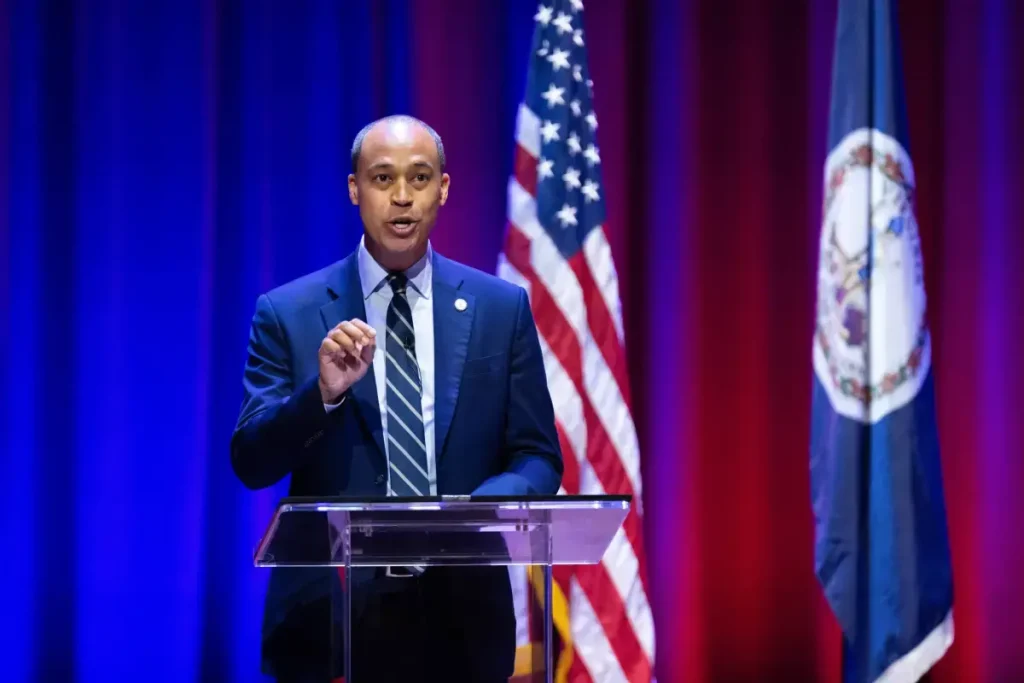Virginia Attorney General Race Shifts After Controversial Text Messages
In a significant turnaround for Virginia politics, Democratic nominee Jay Jones has fallen behind Republican incumbent Jason Miyares in the race for Virginia Attorney General following the revelation of disturbing text messages. According to a recent Virginia Commonwealth University poll, Miyares now leads with 45 percent to Jones’ 42 percent—a dramatic reversal from September when Jones held a comfortable six-point advantage. The shift comes after leaked messages from 2022 surfaced showing Jones suggesting political violence against former House Speaker Todd Gilbert, including comments about shooting Gilbert and disturbing remarks directed at Gilbert’s family. These revelations have transformed what was previously seen as a Democratic-leaning contest into an increasingly competitive race with momentum shifting toward the Republican incumbent.
The controversy erupted when messages from Jones’ private conversations became public, prompting the Democratic candidate to acknowledge their authenticity and issue multiple apologies. Despite these admissions and expressions of regret, the damage to Jones’ campaign has been substantial. Republicans have called for Jones to withdraw from the race entirely—a demand that, if fulfilled at this late stage, would effectively concede the election to Miyares. The timing of these revelations, coming just weeks before the November 4, 2025 election, leaves little opportunity for Jones to rebuild his reputation or redirect the conversation to policy matters. Virginia voters now find themselves weighing the severity of Jones’ statements against his qualifications and platform as they prepare to cast their ballots.
Virginia’s attorney general race carries particular significance as the commonwealth often serves as a political bellwether for national trends. Coming after the 2024 presidential election cycle, political analysts view this contest as an important indicator of voter sentiment and party strength heading into future election cycles. The sudden competitiveness of this race mirrors the swing-state nature of Virginia itself—a formerly reliable Republican stronghold that had shifted toward Democrats in recent election cycles, but which continues to show competitive tendencies in statewide races. The volatility of this race serves as a reminder that Virginia remains politically dynamic despite recent Democratic successes in the state.
Incumbent Attorney General Miyares has capitalized on the controversy, questioning Jones’ fitness for office on social media. “How can we trust Jay Jones to prosecute an MS-13 gang member after he said he wanted to put 2 bullets in an opponents head?” Miyares wrote on X (formerly Twitter). He continued his critique by asking how Jones could be trusted to console grieving parents or support law enforcement after making such threatening statements. Miyares concluded that Jones “has disqualified himself from ever serving as Attorney General,” framing the controversy not merely as offensive statements but as fundamental character flaws that render his opponent unsuitable for the responsibilities of the office. This messaging appears to be resonating with voters, as evidenced by Miyares’ improving position in recent polls.
Jones has attempted to redirect the conversation toward policy differences, arguing that a second Miyares term would enable “Trump’s agenda” in Virginia. In a post on X, Jones promised to “push back against federal overreach and put you first” if elected. However, his efforts to shift the focus from his controversial messages to substantive policy differences have thus far been unsuccessful in stemming his declining poll numbers. The VCU poll showing Jones trailing was conducted between October 6-14 with a 3.95 percent margin of error, surveying 842 Virginia adults. The timing indicates that the poll captured voter sentiment as the controversy was unfolding, suggesting that the full impact of the revelations may not yet be fully reflected in public opinion measurements.
As the November 4, 2025 election approaches, both candidates will continue making their case to Virginia voters in what has become an unexpectedly competitive race. For Jones, the challenge will be to overcome the significant damage caused by his text messages and convince voters that his policy positions and qualifications outweigh concerns about his judgment and temperament. For Miyares, the strategy appears focused on keeping the controversy in the public eye while positioning himself as the more stable and trustworthy candidate. Virginia’s attorney general race, once considered a likely Democratic pickup opportunity, now stands as a testament to how quickly political fortunes can change when candidates’ private communications become public—particularly when those communications suggest a comfort with political violence that many voters find disqualifying regardless of party affiliation.


